/c111567c-03cf-4908-b38e-ff0a4bc0baa5_1.png)
Pandemic Speech Template
Review Rating Score
A speech is described as a form of communication made by a speaker before an audience to address a given purpose. WHO has been assessing the Covid-19 pandemic situation to keep the world abreast with the deadly covid-19 virus. As such regular media speeches are release by WHO to keep the world informed.
When was covid-19 declared a pandemic?
Coronavirus (Covid-19) is a disease, known as a pandemic. It is caused by the SARS-CoV-2 virus. It is said to be one of the first outbreak that is cause by a coronavirus. The pandemic is considered one of the worse outbreak to have happen. WHO have been studying the situation from the start to provide information accurately and timely on this global outbreak. WHO website covid-19 dashboard provide counts of daily covid-19 cases and death worldwide. Below is a speech from WHO on the 11th March, 2020 of the coronavirus.
In the past two weeks, the number of cases of COVID-19 outside China has increased 13-fold, and the number of affected countries has tripled. There are now more than 118,000 cases in 114 countries, and 4,291 people have lost their lives. Thousands more are fighting for their lives in hospitals. In the days and weeks ahead, we expect to see the number of cases, the number of deaths, and the number of affected countries climb even higher. WHO has been assessing this outbreak around the clock and we are deeply concerned both by the alarming levels of spread and severity, and by the alarming levels of inaction. We have therefore made the assessment that COVID-19 can be characterized as a pandemic.
Pandemic is not a word to use lightly or carelessly. It is a word that, if misused, can cause unreasonable fear, or unjustified acceptance that the fight is over, leading to unnecessary suffering and death. Describing the situation as a pandemic does not change WHO’s assessment of the threat posed by this virus. It doesn’t change what WHO is doing, and it doesn’t change what countries should do. We have never before seen a pandemic sparked by a coronavirus. This is the first pandemic caused by a coronavirus. And we have never before seen a pandemic that can be controlled, at the same time. WHO has been in full response mode since we were notified of the first cases.
And we have called every day for countries to take urgent and aggressive action. We have rung the alarm bell loud and clear. As I said on Monday, just looking at the number of cases and the number of countries affected does not tell the full story. Of the 118,000 cases reported globally in 114 countries, more than 90 percent of cases are in just four countries, and two of those – China and the Republic of Korea - have significantly declining epidemics. 81 countries have not reported any cases, and 57 countries have reported 10 cases or less. We cannot say this loudly enough, or clearly enough, or often enough: all countries can still change the course of this pandemic. If countries detect, test, treat, isolate, trace, and mobilize their people in the response, those with a handful of cases can prevent those cases becoming clusters, and those clusters becoming community transmission. Even those countries with community transmission or large clusters can turn the tide on this virus.
Several countries have demonstrated that this virus can be suppressed and controlled. The challenge for many countries who are now dealing with large clusters or community transmission is not whether they can do the same – it’s whether they will. Some countries are struggling with a lack of capacity. Some countries are struggling with a lack of resources. Some countries are struggling with a lack of resolve. We are grateful for the measures being taken in Iran, Italy and the Republic of Korea to slow the virus and control their epidemics. We know that these measures are taking a heavy toll on societies and economies, just as they did in China. All countries must strike a fine balance between protecting health, minimizing economic and social disruption, and respecting human rights. WHO’s mandate is public health. But we’re working with many partners across all sectors to mitigate the social and economic consequences of this pandemic.
This is not just a public health crisis; it is a crisis that will touch every sector – so every sector and every individual must be involved in the fight. I have said from the beginning that countries must take a whole-of-government, whole-of-society approach, built around a comprehensive strategy to prevent infections, save lives and minimize impact. Let me summarize it in four key areas. First, prepare and be ready. Second, detect, protect and treat. Third, reduce transmission. Fourth, innovate and learn. I remind all countries that we are calling on you to activate and scale up your emergency response mechanisms;
Communicate with your people about the risks and how they can protect themselves – this is everybody’s business; Find, isolate, test and treat every case and trace every contact; Ready your hospitals; Protect and train your health workers. And let’s all look out for each other, because we need each other. There’s been so much attention on one word. Let me give you some other words that matter much more, and that are much more actionable. Prevention. Preparedness. Public health. Political leadership. And most of all, people. We’re in this together, to do the right things with calm and protect the citizens of the world. It’s doable. I thank you.
Download this Speech right now from our website. Share the contents with your colleagues. Provide your feedback in the comments below. If you do not find this speech helpful, then we have more speeches for you on our main page. Check them out.
Is the template content above helpful?
Thanks for letting us know!
Reviews
Jade Maddox(2/9/2022) - GBR
Seriously useful…
Theodora Olsen(2/9/2022) - DEU
Materials I just received from you are easy to use and very helpful
Zoraida Ware(2/9/2022) - AUS
amazing that you have exactly the document that I need
Author. Content was provided by:
Camila Jones
Camila is a Creative Writing graduate from the University of Alaska Fairbanks who has made her mark in the marketing world as a former Marketing Manager at GCI Liberty. Her career has been a dynamic blend of creative storytelling and strategic marketing, where she excelled in developing impactful campaigns. She is a dedicated volunteer at Alaskan Parks, where she finds inspiration in preserving our state's natural beauty.
Follow Camila
Last modified
Our Latest Blog
- The Importance of Vehicle Inspections in Rent-to-Own Car Agreements
- Setting Up Your E-mail Marketing for Your Business: The Blueprint to Skyrocketing Engagement and Sales
- The Power of Document Templates: Enhancing Efficiency and Streamlining Workflows
- Writing a Great Resume: Tips from a Professional Resume Writer
Template Tags
Need help?
We are standing by to assist you. Please keep in mind we are not licensed attorneys and cannot address any legal related questions.
-
Chat
Online - Email
Send a message
You May Also Like

Minister's Speech for the Day of African Child: Ensuring Children's Rights in Africa
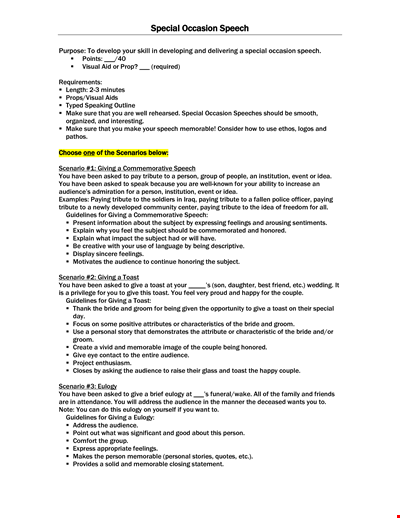
Giving a Memorable Special Occasion Speech – Tips for Captivating Your Audience

Behind the Impact: Uncovering the History of Informative Speeches
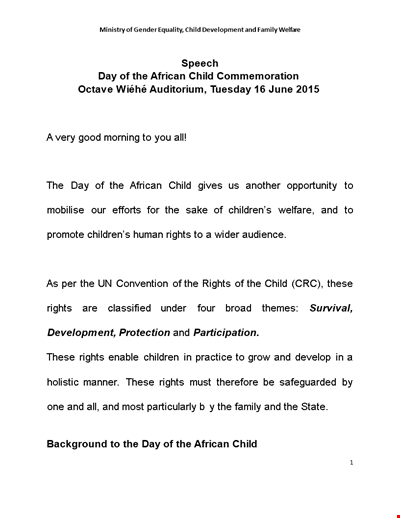
Speech For The Minister, Day Of African Child,

Steps to Deliver an Engaging Demonstration Speech

Ceremonial Speeches Week - Inspiring Speeches and Memorable Remarks for Special Occasions
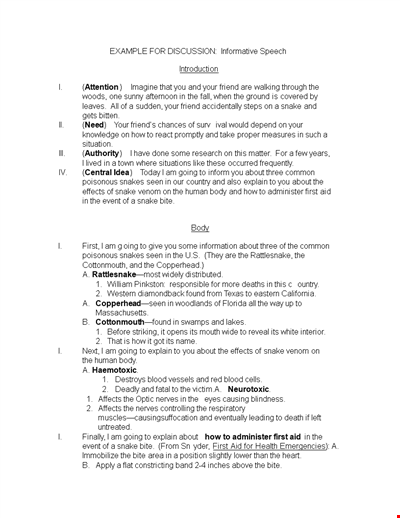
Snakebite Speech Sample: Effects, Going Venom

Ceremonial Speeches Week
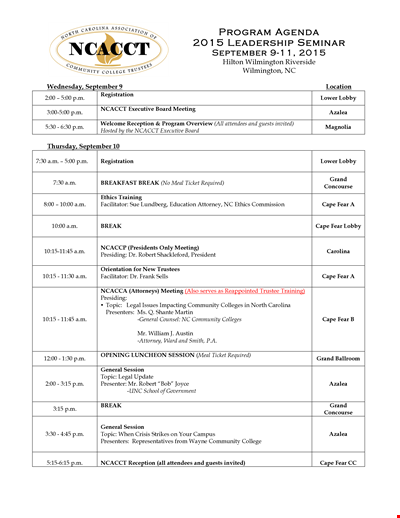
Boost Your Leadership Skills at Our Community Leadership Seminar - September in Lobby
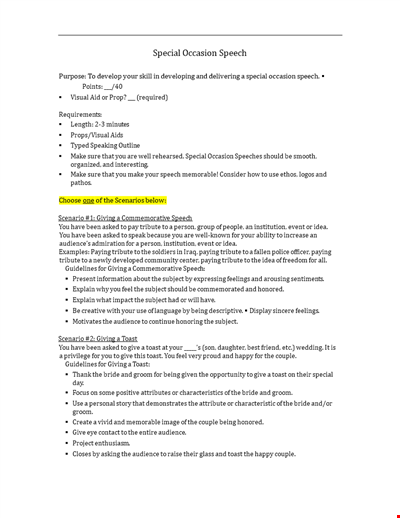
Special Occasion Speech Criteria
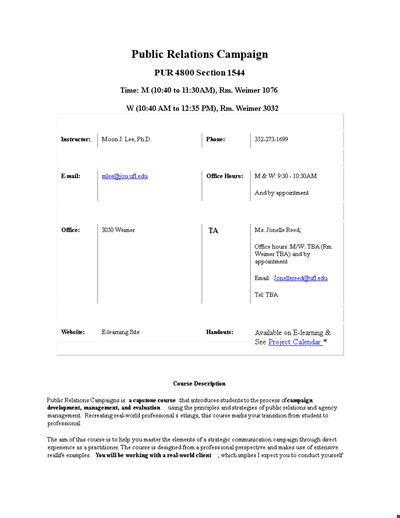
Pur Pr Campaign Lee Sp
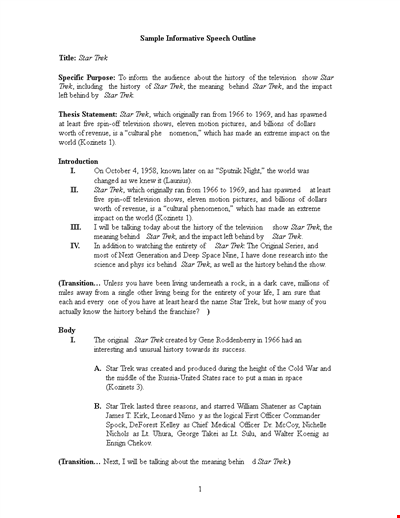
Speech Sample Informative Speech

Sample Essay on Informative Speech: Engaging the Audience with Specific Information and Purpose

Tribute Speech Sample
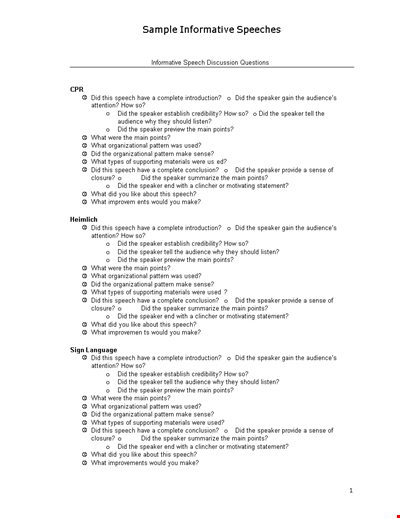
Sample Informative Speeches: A Comprehensive Guide by Expert Speakers

Demonstration Speech Sample Outline